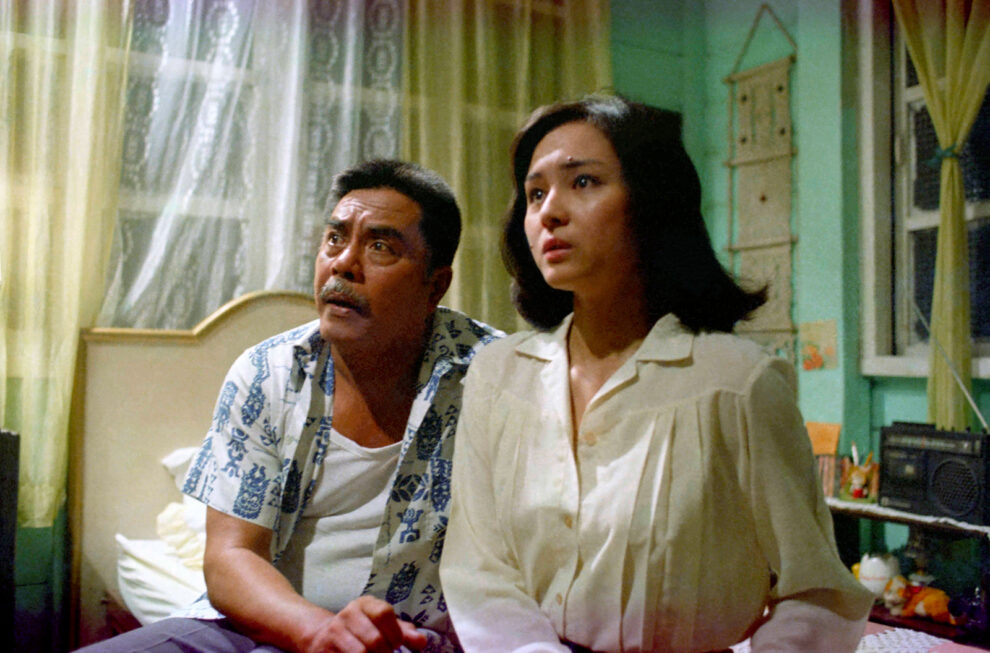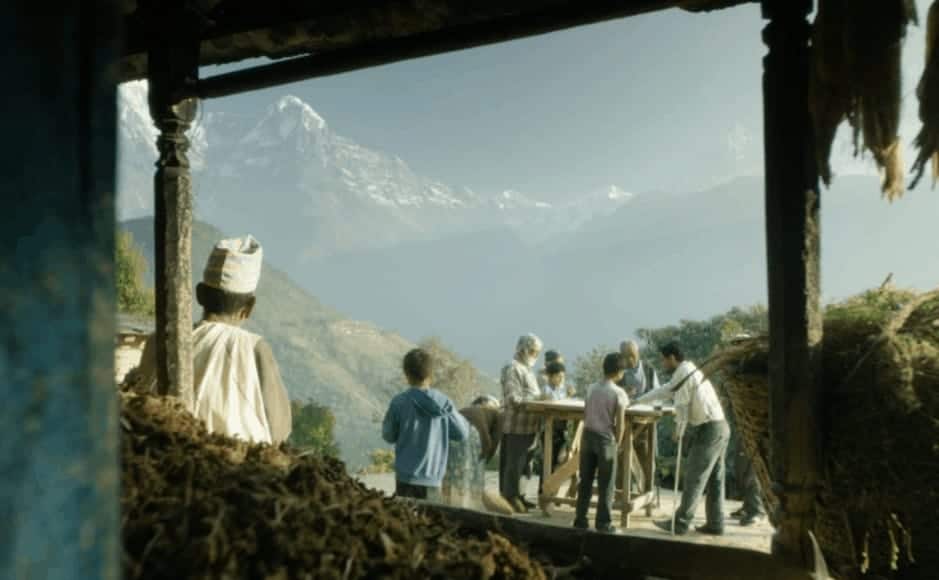“Kisapmata” is another notorious as much as significant movie in the history of Filipino cinema, for a number of reasons. For starters, the plot was inspired by the crime reportage “The House on Zapote Street” written by Nick Joaquin, with the piece chronicling the events leading up to the highly publicized familicide committed by Pablo Cabading, a retired policeman. The film included the first major treatment of incest in the history of the country's cinema, while its message was perceived to be against both patriarchy and the regime of then President Ferdinand Marcos, which expectedly led to issues with the Censorship Board. Despite all its issues, the film premiered at the 7th Metro Manila Film Festival, where it won 10 awards, including Best Film, while it was also screened at the 1982 Cannes Film Festival during the Directors' Fortnight. Furthermore, the Filipino Film Critics included it in their list of Ten Best Films of the Decade, while in 2020, the film was digitally restored with a subsequent theatrical screening at the 34th Il Cinema Ritrovato in Bologna, Italy.
Mila Carandang is a young woman, who, as the film begins, tells her father, Diosdado “Dadong”, a retired policeman, that she is pregnant, while her mother is working on her sewing machine, carefully listening to what is going on. As Mila explains the situation to her co-worker Noel Manalansan, the control her father has on the whole family, mostly deriving from fear, is highlighted quite eloquently. In the end, however, he agrees, although in the meeting with the young man and his parents, his dominance over everyone involved is ascertained once more, with his pushing on his terms regarding the wedding, including a hefty dowry and the guests he wants present. The marriage does happen, but Dadong, using his wife's health as an excuse, essentially forces the young couple to stay with them in his house, to Noel's annoyance, who wants to leave with Mila for their own apartment, as soon as possible. One night, when Noel is visiting a friend, Dadong locks the door and does not allow him in for the night, which is what brings the young man to his breaking point.
Mike De Leon masterfully directs a movie that unfolds in two levels, one literal and one metaphorical. The first one is presented as a psychological thriller which eventually becomes a horror, with De Leon building an atmosphere of pressure, angst, and slight disorientation, from the introductory scene. The main mediums he achieves this are two. The first is the astonishing performance by Vic Silayan as “Dadong” with the psychological pressure he puts on everyone around him, in a rather terrifying type of bullying, being impressive to watch, in all the scenes he appears in the movie. His carefully placed remarks, his laughter, all move towards the same direction, with the fact that he very rarely becomes violent actually adding to his horrifying persona. The second is the way De Leon and his DP Rody Lacap have framed the two-storied house, as a setting that is suffocating and claustrophobic, with the moments Dadong puts the bar on the door highlighting this approach in the most eloquent fashion.
The second level includes a distinct accusation towards patriarchy, with the way Dadong lords over everyone around him, including his wife, his daughter, his son-in-law, and essentially even Noel's parents, portraying the comment quite clearly, also due to the way all suffer from his actions. The extension to the critique of the Marcos regime, as a metaphor, is also rather palpable, particularly in the way Dadong, who symbolizes the dictator, uses violence and fear to keep everyone in order, and murder, when they dare to stand up against him. The incestuous relationship with his daughter (which is presented only through dialogue) moves in both paths (the consequences of the patriarchy and the regime), adds even more to the monstrous nature of the father, while also explaining his motives for wishing his daughter to stay under his roof. Add to all that the remarks about the corruption of the police, which the main character openly discusses with his former colleagues, and subsequently, that the guests he wants to bring to his daughter's wedding are all politicians and in general, members of various authorities, and the accusation De Leon presents becomes even more palpable.
Also quite interesting is the role of the mother, Adelina, which Charito Solis plays quite convincingly. The way she seems to know what is happening but does not have the strength to stand up against her husband in any way, essentially becoming his supporter in this way, could be perceived as a metaphor for all those whose lack of will for resistance actually helped the Marcos regime to stay in authority for such a long time. A revelation regarding her relationship with Dadong close to the end, adds even more to this comment.
The editing by Jess Navarro is also top notch, with him implementing a relatively fast pace that suits the overall aesthetics nicely, while it is easy to say that no scene is wasted throughout the movie, with the 90 minutes of duration being implemented in the most economical way possible.
“Kisapmata” is a masterful film that showcases De Leon's ability to create narratives that work brilliantly on a number of levels, while retaining their artistry even during their most shocking moments.
















